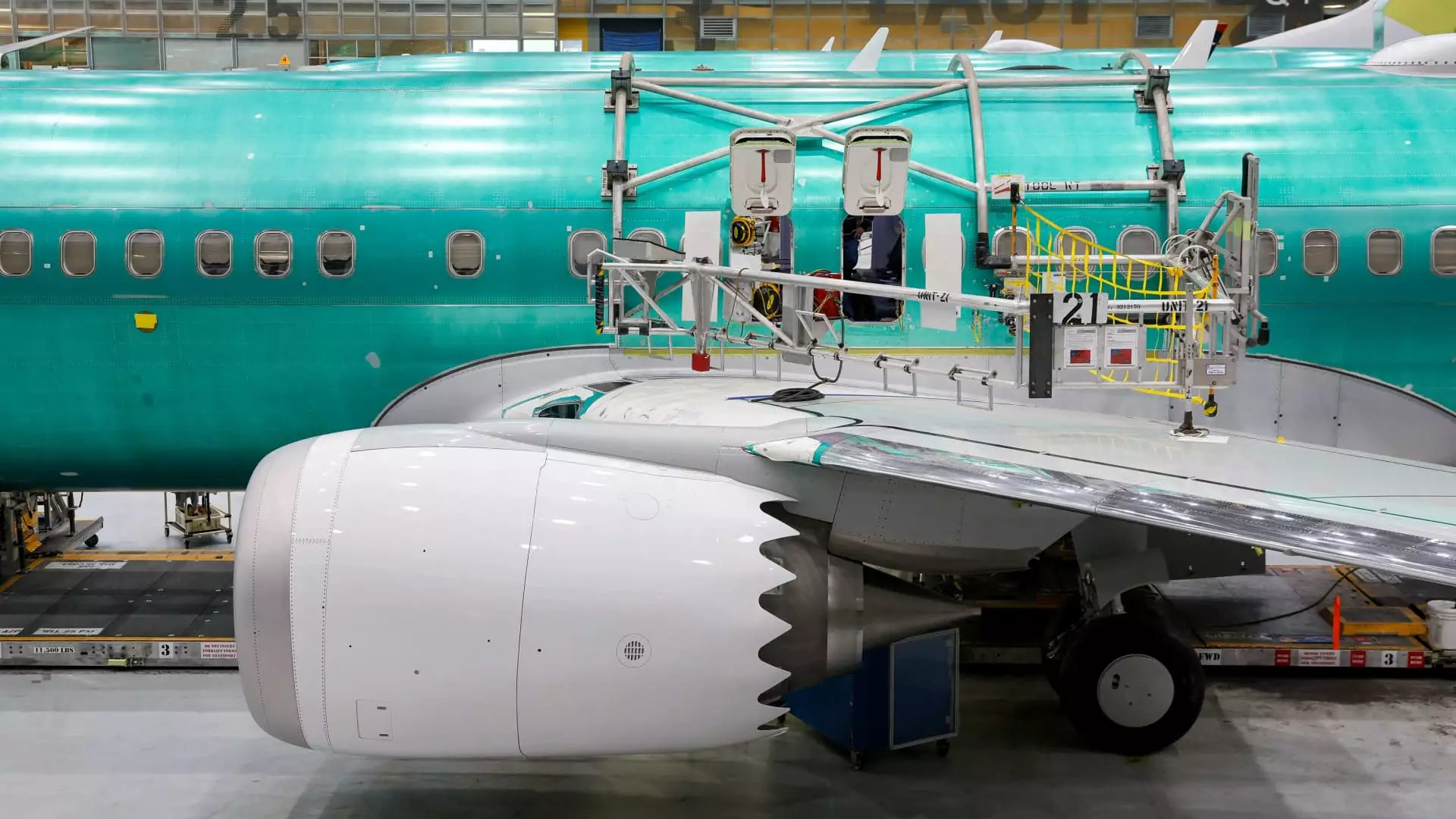Boeing, once a beacon of aerospace innovation, finds itself in a challenging position as it embarks on a journey of rebuilding. The catalyst for this renewed focus came just over a year ago when a serious incident highlighted significant flaws in Boeing’s safety protocols. An emergency exit door’s fuselage panel detached mid-flight from an Alaska Airlines Boeing 737 Max 9, causing sheer panic among passengers. Thankfully, no one was hurt, and the aircraft landed safely in Portland, Oregon. A preliminary investigation revealed that crucial bolts were missing from the aircraft, undermining confidence in the manufacturer and its quality control systems.
This incident was far from an isolated event. It marked another chapter in Boeing’s tumultuous history, particularly following the 2018 crashes of the 737 Max that claimed 346 lives. Since then, the company’s stock has plummeted by over 30%, a stark contrast to the S&P 500’s nearly 27% gain in the same timeframe. As Boeing grapples with its tarnished reputation, it has ignited a crucial dialogue on the very foundations of its operational culture.
In response to the growing scrutiny and safety concerns, Boeing’s leadership underwent significant transformations. Transitioning to new management was only the tip of the iceberg. The newly appointed CEO, Kelly Ortberg, alongside other executives, has emphasized the importance of instilling a robust safety-first mentality throughout the organization. This has led to more rigorous training programs for factory workers, ensuring that many of the individuals tasked with assembling airplanes are adequately prepared for their roles.
Additionally, Boeing introduced random quality audits across its factories to ensure compliance with heightened safety standards. Such measures are not simply superficial changes; they represent a strategic pivot towards stabilizing production without compromising on quality. Ortberg has asserted that the company must focus intensively on its core competencies, acknowledging that doing less can sometimes yield better results than attempting to stretch resources too thin. This commitment to quality is critical, especially as the Federal Aviation Administration (FAA) has increased its oversight of Boeing operations, a move aimed at rebuilding trust in a manufacturer that has previously faltered under pressure.
However, the implications of reconstructing Boeing extend far beyond operational changes. As noted by FAA’s chief Mike Whitaker, a fundamental cultural transformation is necessary—one that places safety and quality above profit margins. This shift will not occur overnight and requires unwavering commitment from management at all levels. It involves not only enhancing the quality of aircraft but also restoring faith among employees, stakeholders, and the flying public.
Financial hardships continue to haunt Boeing. The company has yet to post an annual profit since 2018, a fact underlined by staggering losses exceeding $30 billion since 2019. The introduction of cost-cutting measures and workforce reductions—cutting about 10% from an already sizeable workforce of approximately 170,000—illustrates the severity of the situation. By pruning its staff, Boeing aims to streamline operations and focus on core products, yet this must be balanced with morale and job security among its employees.
One of the most significant hurdles that Boeing faces is the capability to meet production demands effectively. Recent labor strikes, which temporarily halted the production of most aircraft during the summer, revealed vulnerabilities in Boeing’s supply chain and operational processes. With union negotiations concluding with substantial wage increases, it remains to be seen how this will impact productivity moving forward.
As Boeing navigates these tumultuous waters, the proximity of Airbus looms large. The competitor has consistently outpaced Boeing in delivery volume, further emphasizing the urgency for Boeing to regain its footing in the market. However, analysts and airline executives are cautiously optimistic regarding Ortberg’s leadership. His approach goes beyond short-term fixes; it aims for a cultural renaissance at Boeing that prioritizes accountability and a commitment to safety, gradually transforming the company into a trustworthy partner for airlines worldwide.
The challenges confronting Boeing are monumental, yet they also present a unique opportunity for reinvention. The aviation giant is at a pivotal crossroads, where the success of its recovery hinges on a genuine cultural shift, operational efficiency, and renewed accountability. By focusing on quality over quantity, embracing transparency, and diligently addressing the inadequacies of the past, Boeing can lay the groundwork for a resurgence that safeguards its legacy as a leader in aerospace innovation. As it strives to overcome a turbulent history, the path to recovery will demand resilience, dedication, and an unwavering commitment to the core values that define the industry.

